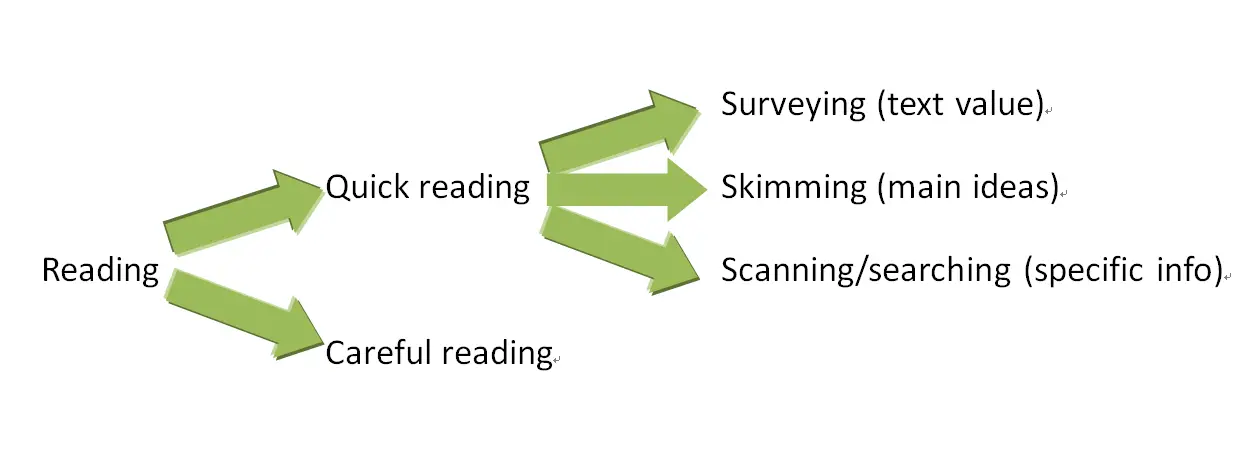Show AWL words on this page.
Show sorted lists of these words.


 







|
 Podcast is loading. Problems? Too slow? You can also access the Podcast by
clicking here.
Podcast is loading. Problems? Too slow? You can also access the Podcast by
clicking here.This message will disappear when then podcast has fully loaded.
In academic contexts you will have much to read, from thick text books to academic journal articles. Although this can seem overwhelming at first, you can learn to cope by using various reading skills, as well as trying to increase reading speed.
Reading skills
Often the most effective strategy for increasing reading speed is to avoid reading every word. If you just want to know whether a text is worth reading in more detail, you can survey the text by reading about the author, looking at the title, introduction, etc. If all you want to know are the main ideas, then you can skim the text, focusing on the introduction, first sentences of paragraphs, etc. Finally, if you want to find specific information you can scan or search the text for key words or phrases. Another important skill to employ is to establish a purpose before reading: knowing why you are reading will determine how you should read (e.g. skim, scan, or carefully), as well as which parts of the text may be useful (perhaps you do not need to read all). A final skill which will be important to increase speed is guessing unknown words in the text: if you stop to look up every word you do not know, you will waste a lot of time. Each of these skills is considered in more detail in the following sections.
The following diagram outlines the different approaches to reading mentioned above.

Reading speed
You cannot skim, scan or survey everything. You will still need to read texts closely for detailed understanding, often in conjunction with note-taking. The average reading speed is around 250 words per minute, and the average reader reads each word individually. It is, however, possible to recognise four or five words at a time, and the key to increasing reading speed is to take in more than one individual word when you read. A simple way to do this initially is to divide the page vertically into three or four sections, either by folding it or drawing lines, and to look only at the middle of each section. As this habit becomes more natural, you will not need to fold the page or draw lines, and may even be able to reduce the number of sections to two per page.
References
University of Leicester (n.d.) Improving your reading skills. Available at http://www2.le.ac.uk/offices/ld/resources/study/reading (Access Date 16 February, 2016).
Wallace, M.J. (2004) Study Skills in English. Cambridge: Cambridge University Press.



